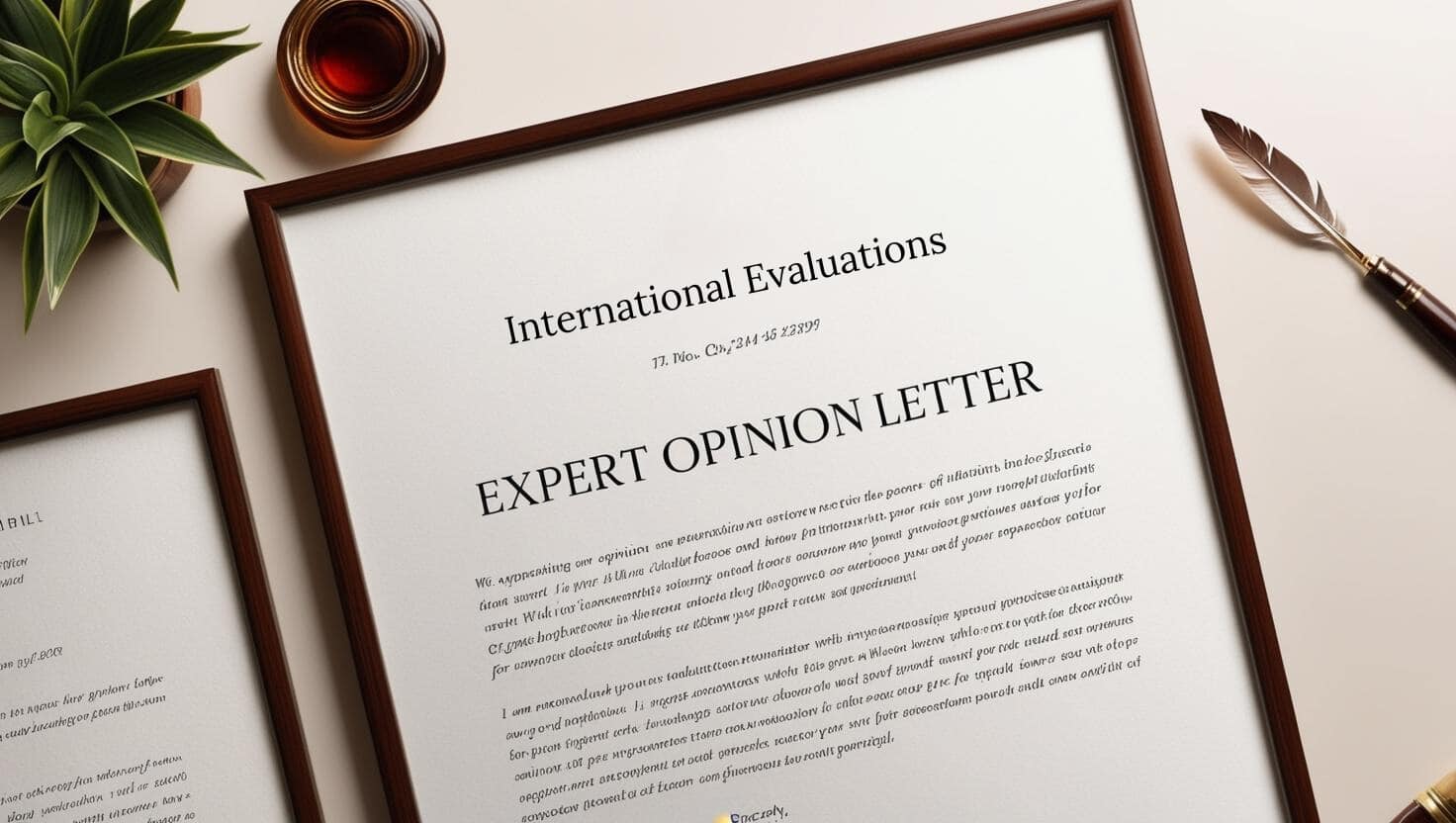Introduction
In a significantly globalized world, the need to examine work experience properly has never been more vital. People aiming to advance their careers or relocate often find themselves navigating a maze of scholastic and expert certifications from numerous nations. For employers and educational institutions alike, understanding these qualifications is pivotal in guaranteeing that they choose the right prospects.
This article dives deep into Unlocking Potential: Comprehensive Work Experience Assessment Techniques, checking out different approaches, including academic credential evaluation, international credential examination services, course-by-course credential evaluation, and the significance of the expert viewpoint letter in making notified decisions about prospective staff members or students.
Unlocking Prospective: Comprehensive Work Experience Assessment Techniques
Evaluating work experience serves as a bridge in between individual possible and opportunity. Yet, how do we open this potential efficiently? The answer lies in a multi-faceted technique that integrates various evaluation strategies tailored to private requirements and contexts.

Understanding Work Experience Evaluation
Work experience evaluation assesses an individual's professional background, skills, and proficiencies relative to job requirements or academic standards. This process can significantly differ https://privatebin.net/?8d473e30a525677e#JCm5hRMvRYwFdb9pnBywhdJKfVQkxkNzJEZ4CB6sFDg8 based on area, market, and specific roles.
The Significance of Accurate Evaluation
Why is accurate work experience examination crucial? Errors can lead to poor hiring choices, mismatched academic placements, or unsatisfied career aspirations. It's necessary for employers and institutions to ensure they utilize exact approaches when evaluating qualifications.
Key Components in Evaluating Work Experience
Professional Background Check
A thorough review of previous employment history is vital. This consists of verifying job titles, durations of work, duties held, and achievements.
Skills Assessment
Understanding the abilities gotten throughout previous roles helps determine suitability for future positions.
Industry Relevance
Assessing whether previous experiences align with current industry standards is vital for a significant assessment.
Academic Credential Evaluation
This involves evaluating any formal education got alongside expert experience.
Types of Credential Evaluations
International Credential Assessment Services
When prospects possess certifications from foreign institutions, worldwide credential evaluation services enter into play.
What Are International Credential Evaluation Services?
These services examine foreign academic credentials against local requirements. They offer insights into how degrees equate within the domestic education system or labor market.
Why Usage These Services?
- To comprehend equivalency in terms of education level To facilitate smoother migration processes To improve employability by validating foreign qualifications
Course-by-Course Credential Evaluation
What Is Course-by-Course Credential Evaluation?
This type examines each course taken throughout a candidate's education journey instead of just providing a total degree equivalency.
Benefits
- Detailed insights into particular courses undertaken Enables institutions to make informed decisions concerning credit transfers Supports applicants seeking more education by highlighting strengths and weak points
Crafting Reliable Specialist Viewpoint Letters
A specialist opinion letter serves as a vital file in many assessment procedures.
What Is an Expert Viewpoint Letter?
This letter is composed by professionals who have expertise in examining academic qualifications or work experience relative to industry standards.
Why Are They Important?
Expert viewpoint letters serve multiple functions:
- Provide authoritative assessments Validate claims made by candidates about their experiences Enhance credibility throughout application procedures
Steps for Carrying out a Comprehensive Work Experience Evaluation
Gather Documentation
Collect all relevant documents consisting of CVs, recommendation letters, and performance reviews.
Conduct Interviews
Direct conversations offer deeper insights into prospects' experiences and soft skills.
Use Standardized Tools
Use structures or tools developed for assessing skills and experiences systematically.
Comparison Versus Standards
Align findings with industry benchmarks to ascertain significance and value.
Compile Findings into Reports
Present outcomes clearly for stakeholders' review-- transparency is key!
Challenges in Work Experience Evaluation
Recognizing Pitfalls
Despite best efforts, challenges are plentiful in evaluating work experience precisely:
Cultural Differences Variability in Task Titles Lack of Standardization Throughout AreasHow to Overcome These Challenges?
- Train critics on cultural competency. Utilize databases that clarify job title equivalencies across industries.
FAQs
1. What does academic credential examination entail?
Academic credential examination typically involves evaluating degrees obtained from numerous institutions worldwide to determine their equivalency in another nation's education system.
2. Why are worldwide credential examination services necessary?
They aid confirm foreign credentials so that people can acquire work or admission into educational programs without confusion over their qualifications' legitimacy.
3. What identifies course-by-course credential assessment from routine evaluations?
Course-by-course assessments examine each private course taken throughout one's education instead of merely evaluating the degree as a whole.
4. How does a professional viewpoint letter support my application?
A specialist opinion letter supplies reliable support for your claims concerning your certifications or experiences and can considerably strengthen your application's strength.
5. What prevail obstacles faced throughout work experience evaluations?
Common challenges consist of cultural differences impacting interpretations of roles/skills, irregularity in job titles across regions, and absence of standardization resulting in confusion over equivalencies.
6. How can I get ready for a work experience evaluation?
Gather comprehensive documents like your CV/resume, referrals from previous companies, efficiency reviews if readily available, and be ready to discuss your experiences candidly throughout interviews.
Conclusion
As we've explored throughout this post on " Unlocking Prospective: Comprehensive Work Experience Evaluation Techniques," it's clear that effective assessments depend upon nuanced understanding and meticulous execution of several methods-- varying from scholastic credential evaluations to professional viewpoint letters that provide credence to personal narratives.
Employers should accept these extensive techniques not just as administrative needs but as opportunities to empower people through reasonable evaluations-- eventually unlocking the huge potentials hidden within diverse backgrounds worldwide! By investing time in refining these strategies today, companies can construct stronger groups tomorrow while individuals can browse their profession paths with clearness and confidence.